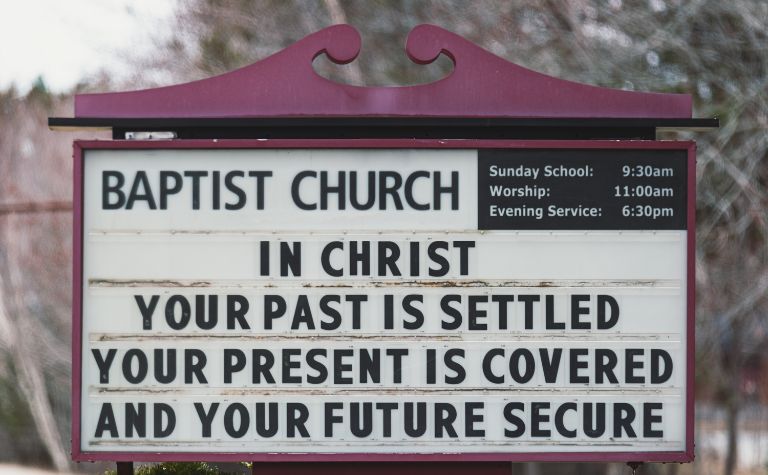The Baptist tradition is one of the largest branches of Christianity in America and around the world. Historically, some Protestant denominations have prohibited their members from activities like dancing, drinking alcohol, and gambling. These facts have led many people to wonder if Baptists are allowed to dance.
Baptists have the freedom to dance, though, in the past, some churches in the tradition have taught that some forms of it are unwise. Dancing can sometimes take place in environments and in combination with other activity that is considered inconsistent with Christian living.
What kind of dancing is unwise? What kind of settings and related behaviors are Baptists to be cautious about when it comes to dancing? Keep reading to learn more.
Also, see Is There Sex In Heaven? to learn more about the Bible’s teachings.

Dancing Baptists: Wise vs. Unwise
Dancing has many purposes and expressions. It’s a social activity — and even a form of worship — that is mentioned and described in the Bible.
In the modern world, people dance at weddings, at nightclubs, and even in church. Dancing in each of these places has different purposes and, sometimes, different forms and styles. (Also, see Do Baptists Drink Alcohol?)
Unwise dancing
Three reasons why Baptists have considered certain forms of dancing unwise are because (1) it can violate a person’s purity, (2) it is sometimes associated with drunkenness, and (3) some associate it with gambling. Some Baptists also take issue with where dancing occurs, like at nightclubs.
Dancing that violates purity
According to Baptist teaching, there are certain forms of dancing that are unwise for Christians. Some forms of dancing involve moving and touching another person in a sexual manner.
Other kinds of dancing have the appearance of sexual activity. Still, different kinds accentuate parts of the body in ways that some people believe are impure.
Song lyrics and certain kinds of clothing are sometimes associated with forms of dancing that may violate a participant’s purity. (Also, see Baptist vs. Presbyterian: What’s the Difference?)
Forms of dancing that are sexually suggestive are sometimes set to music whose lyrics have sexually impure descriptions and connotations.
Some people who engage in such forms of dancing wear clothing that Baptists have traditionally considered too revealing and sexually suggestive.
For many Baptists, moving the body to music isn’t the essence of the problem. Purity is the heart of the matter. Any behavior, dancing or otherwise, which leads a person to violate — or even to risk violating — their purity should be avoided.
It is inconsistent with this way of thinking to say, “But people danced in the Bible, so it’s okay if I dance, too.” The issue to many Baptists is purity. Scripture consistently and strongly condemns impurity (e.g., Ps. 119:9, 1 Cor. 6:18, 1 Tim. 4:12).
Also, see First Baptist vs Second Baptist: What’s the Difference? to learn more.
Dancing is associated with drinking alcohol
Many Baptists believe that Christians shouldn’t drink alcohol at all. Other Baptists argue that the Bible condemns drunkenness but not the moderate consumption of alcohol.
Because dancing sometimes takes place at locations where people drink alcohol, and some even get drunk, like a nightclub, some Baptists believe Christians should avoid such places.
Even more extreme is the view that Christians shouldn’t dance in any location because it’s an activity that people associate with places like nightclubs.
Gambling associated with alcohol
Like drinking and drunkenness, some Baptists associate dancing with gambling. The association comes from places like bars where both activities occur together.
Some Baptists believe Christians shouldn’t dance in such places. Others argue that they shouldn’t dance in any location because it’s an activity associated with places like bars.
Also, see the Christian Denominations Comparison Chart to learn more.

Dancing In Purity
Baptists that don’t believe that dancing is universally prohibited suggest there are times and places where dancing is an acceptable and holy expression of joy and worship.
- Weddings: Many Baptists believe that a father-daughter dance at a wedding is pure, holy, and pleasing to God. It’s an important moment in which a woman transitions from the family that raised her to a family of her own. Additionally, the dance between the bride and groom can not only be fun but an expression of romantic love in a God-ordained context. (Also see Can a Baptist Marry a Catholic?)
- Children: Who hasn’t seen a toddler instinctively dance and bounce to the rhythm of music played in the home, in the car, or at church? Many Baptists believe that such expressions are delightful displays of innocence, which should be encouraged, not disciplined.
- Worship: Some Baptists ask this question: people like Miriam and David danced as an expression of worship, so why can’t believers today? Dancing as a form of worship is not typical in most Baptist churches. Nevertheless, the biblical descriptions of dancing as worship are positive.
Bible Verses On Dancing
When Baptists disagree about dancing, their differences are often rooted in how to interpret and apply Scripture.
Those who believe that dancing is universally wrong and those who believe it’s sometimes wrong both base their arguments on the Bible. (Also, see What Does First Baptist Mean?)
The problem isn’t that the Bible doesn’t mention dancing; the challenge is understanding what it means when it does.
The Bible mentions and describes dancing in several verses. In some scenes, dancing is associated with sin and evil. Yet, in others, it’s associated with joy in the Lord and worship.
| 5 Examples of Dancing in the Bible with Positive Connotations |
|---|
| Exodus 15:20 | dancing after the exodus from Egypt |
| Psalm 149:3 | Dancing in worship |
| Psalm 30:11 | Dancing in worship |
| “Let them praise his name with dancing, making melody to him with tambourine and lyre!” (ESV) |
| Ecclesiastes 3:4 | Dancing is contrasted with mourning |
| “You have turned for me my mourning into dancing; you have loosed my sackcloth and clothed me with gladness.” (ESV) |
| Ecclesiastes 3:4 | dancing is contrasted with mourning |
| “A time to weep, and a time to laugh; a time to mourn, and a time to dance.” (ESV) |
| Luke 15:25 | dancing after the prodigal son returns |
| “Now his older son was in the field, and as he came and drew near to the house, he heard music and dancing.” (ESV) |
Dancing is also mentioned in the context of sin and evil. Some Bible readers believe that dancing is directly connected to sin in the sense that it’s a physical manifestation of sin and evil.
Other readers believe the sin mentioned in these passages isn’t dancing. The sin in Exodus 32 is idolatry, and the sin in Mark 6 is the murder of John the Baptist.
Also, see What Do Baptists Believe? to learn more.

| 2 Examples of Dancing in the Bible with Negative Connotations |
|---|
| Mark 6:22 | Dancing at the death of John the Baptist |
| “And as soon as he came near the camp and saw the calf and the dancing, Moses’ anger burned hot, and he threw the tablets out of his hands and broke them at the foot of the mountain.” (ESV) |
| Mark 6:22 | dancing at the death of John the Baptist |
| “For when Herodias’s daughter came in and danced, she pleased Herod and his guests. And the king said to the girl, “Ask me for whatever you wish, and I will give it to you.” |
Baptists will likely continue to debate the appropriateness of dancing. Momentum in Baptist traditions is to loosen prohibitive restrictions, yet some denominations and churches prefer their traditional ways to modern changes. (Also see Do Baptists Believe in Original Sin?)
Also, see Baptist vs Assemblies of God: What’s the Difference? to learn more.
Please see the related articles below.
References:
[1] Source
[2] Source
[3] Source
Related Articles
Baptist and evangelical churches are numerous in America, and the influence of each tradition has also spread to different continents and countries. As a result, many people have heard the terms...
The Baptist tradition, like other branches of the Christian faith, has a variety of expressions. The different names of denominations and churches within the tradition reflect this. Understanding...
